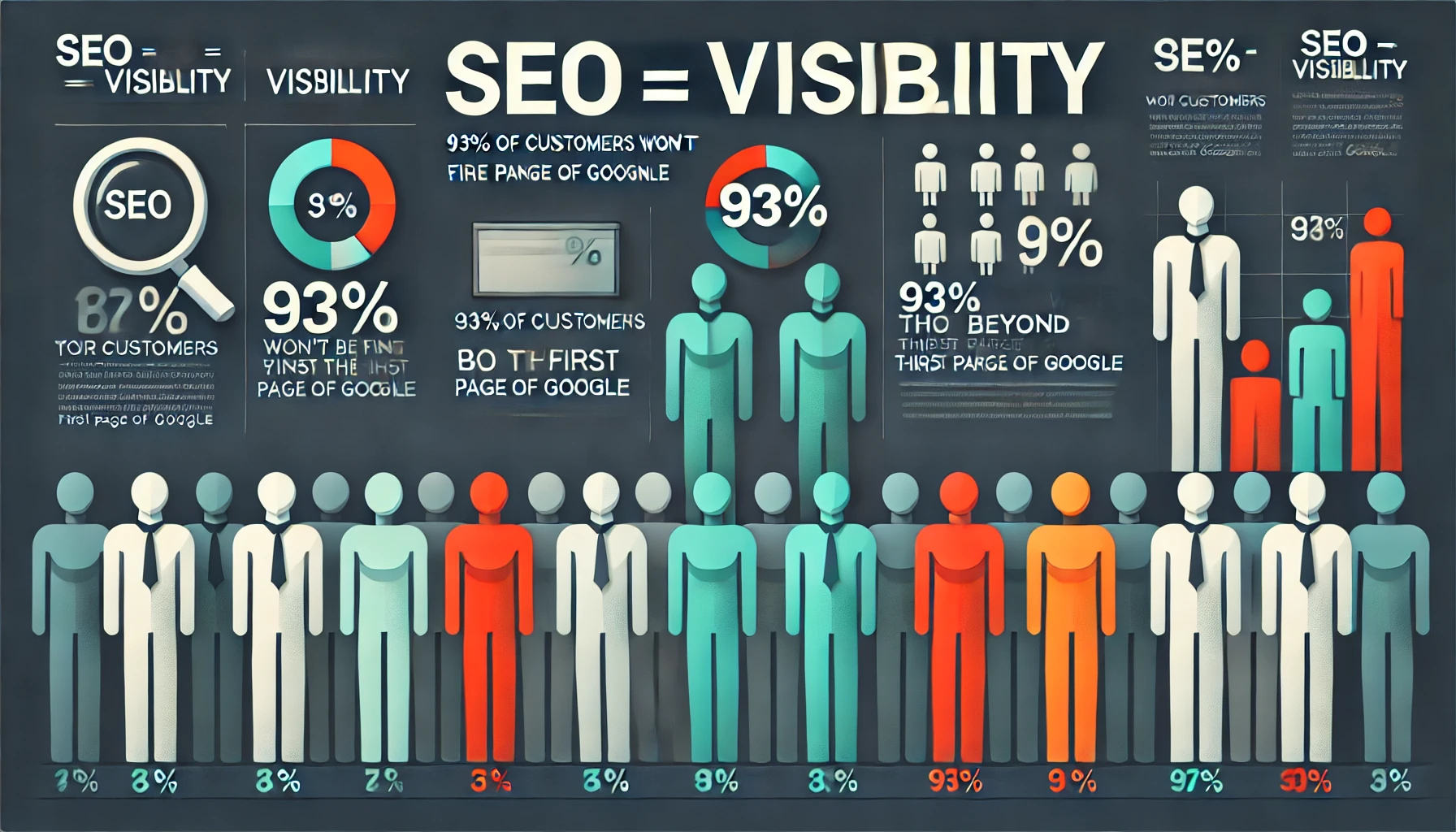What Is SEO?
SEO stands for “search engine optimization.” In simple terms, it means the process of improving your site to increase its visibility when people search for products or services related to your business in Google, Bing, and other search engines. The better visibility your pages have in search results, the more likely you are to garner attention and attract prospective and existing customers to your business.
Why is SEO important?
Google looks at a variety of different factors when determining the ranking of websites that show up on their SERPs. They want to find content that is relevant to the user’s query, but that can also be trusted to provide value for the reader. When content ranks highly on the SERP, it has a much greater chance of attracting clicks and attention than the content ranked lower. An estimated 30% of clicks will go to the search results in Position One on the SERP, falling to 12% by Position Three. At the bottom of the page, sites in position in nine and ten only receive about 2% of the clicks.
The disparity between the top and lower ranking sites indicate clearly that brands desiring attention from online customers need to boost their rankings. The digital ecosystem is quickly becoming an essential part of the sales funnel for nearly all businesses. In 2016, for the first time, more purchases were made online than in stores. Almost half of retailers also say that customers like to research online, even if they do end up buying in a store. Brands need to pay attention to SEO to ensure that their share of voice and visibility to customers is not compromised.
SEO has become a critical component to the online success of businesses. Those who want to make sure that their organizations have a strong presence and are ready to engage the modern customer need to invest in learning SEO and becoming domain experts.
If you are looking for SEO company, here is the list: SEO Johor Bahru, SEO KL, SEO Penang, SEO Malaysia, SEO Singapore.
How SEO works?
Search engines such as Google use an algorithm or set of rules to determine what pages to show for any given query. These algorithms have evolved to be extremely complex, and take into account hundreds or even thousands of different ranking factors to determine the rankings of their SERPs. However, there are three core metrics that search engines evaluate to determine the quality of a site and how it should rank:
- Links – Links from other websites play a key role in determining the ranking of a site in Google and other search engines. The reason being, a link can be seen as a vote of quality from other websites, since website owners are unlikely to link to other sites that are of poor quality. Sites that acquire links from many other sites gain authority (called “PageRank” in Google) in the eyes of search engines, especially if the sites that are linking to them are themselves authoritative.
- Content – In addition to looking at links, search engines also analyze the content of a webpage to determine if it would be relevant for any given search query. A large part of SEO is in creating content that is targeted towards the keywords that search engines’ users are searching for.
- Page structure – The third core component of SEO is page structure. Because webpages are written in HTML, how the HTML code is structured can impact a search engine’s ability to evaluate a page. Including relevant keywords in the title, URL, and headers of the page and making sure that a site is crawlable are actions that site owners can take to improve the SEO of their site.
The search engine optimization process involves optimizing each of these core components of search engine algorithms in order to rank higher in the search result.
Free, no-obligation consultation.
Ready to learn more about our search engine optimization services?
Let's Talk Business